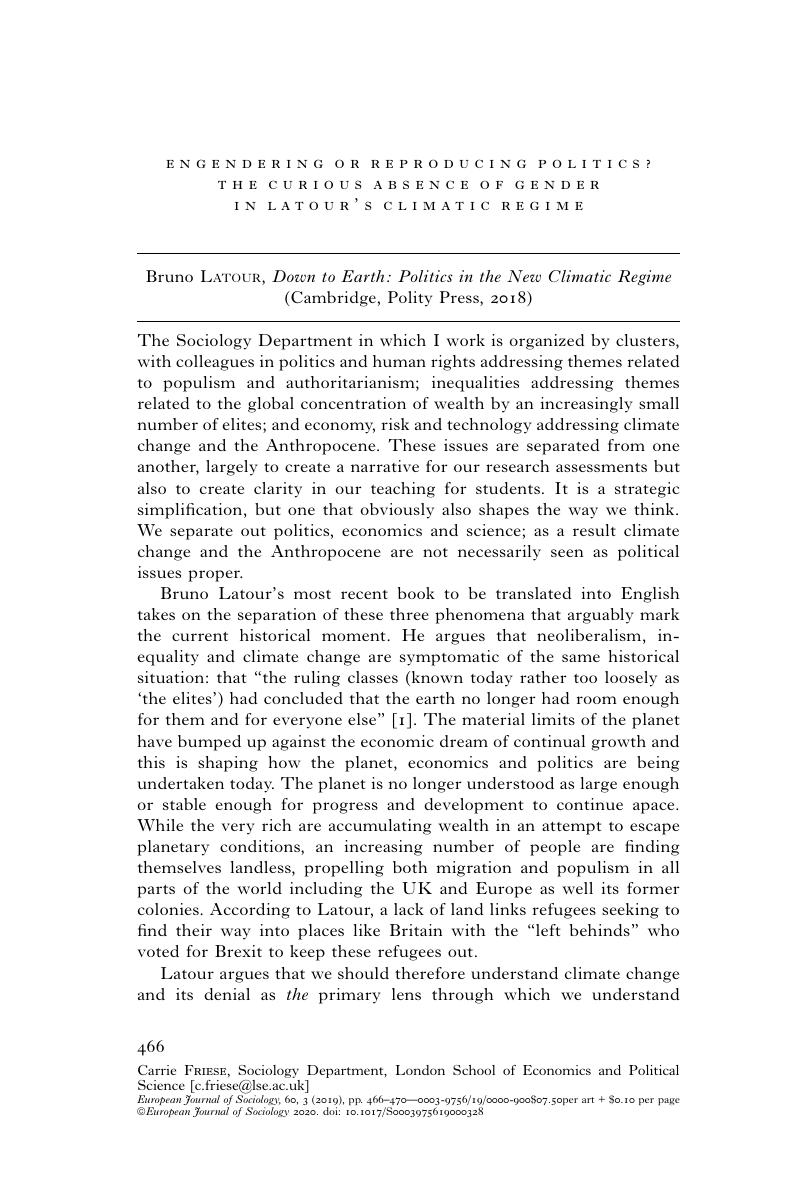No CrossRef data available.
Published online by Cambridge University Press: 14 February 2020

1 M. McQuarrie, 2017, “The Revolt of the Rust Belt: Place and Politics in the Age of Anger,” British Journal of Sociology, 68: S120-S152.
2 J. Meek, 2019, “The Two Jacobs: James Meek on Post-Brexit Britain”, London Review of Books, 41: 13-16, page 13.
3 N. Hopwood, R. Fleming and L. Kassell, 2018, Reproduction: Antiquity to the Present Day (Cambridge, Cambridge University Press).
4 S. E. Muller-Wille and H.-J. Rheinberger, 2012, A Cultural History of Heredity (Chicago, University of Chicago Press) ; H. Ritvo, 1995, “Possessing mother nature: Genetic capital in eighteenth-century Britain”, in J. Brewer and S. Staves , ed., Early Modern Conceptions of Property (London, Routledge: 413-426).
5 S. Franklin, 2007, Dolly Mixtures: The Remaking of Genealogy (Durham NC, Duke University Press); S. Franklin, 2013, Biological Relatives: IVF, Stem Cells, and the Future of Kinship (Durham NC, Duke University Press).
6 A. E. Clarke and D. J. Haraway, 2018, Making Kin not Population: Reconceiving Generations (Chicago, Prickly Paradigm Press).
7 J. Latimer and M. Miele, 2013, “Naturecultures? Science, affect and the non-human,” Theory, Culture & Society, 30: 5-31.